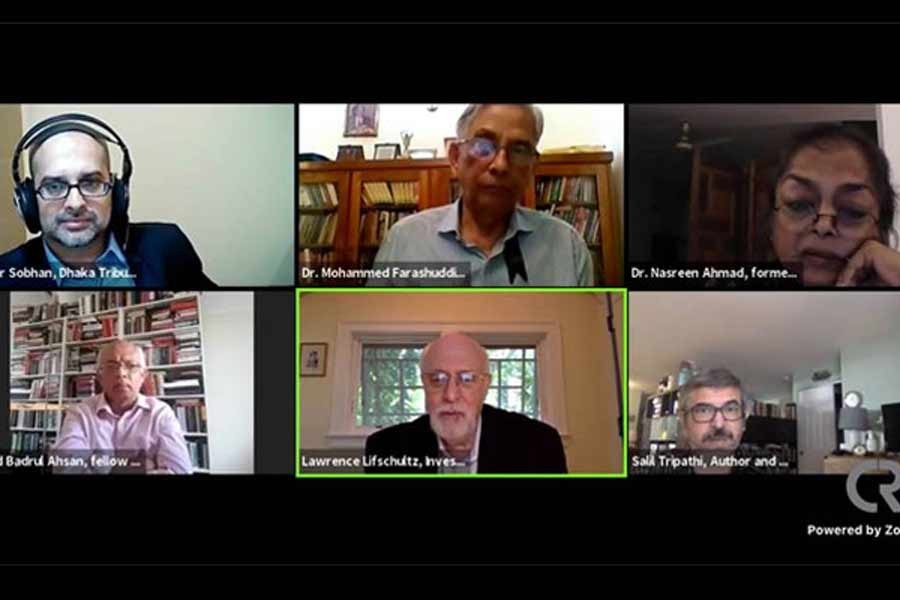American journalist Lawrence Lifschultz has said the ‘connection’ between Ziaur Rahman and the United States behind the assassination of Bangabandhu Sheikh Mujibur Rahman should be investigated.
Lifschultz, who was the South Asia correspondent for the Far Eastern Economic Review when the massacre of Bangabandhu’s family took place on Aug 15, 1975, recounted the days in an online discussion.
The Awami League’s Centre for Research and Information or CRI organised the discussion – “Bangladesh 1975: Setting the Clock Back”, on Thursday, five days after the death anniversary of the Father of the Nation and National Mourning Day, reports bdnews24.com.
“This is not only Bangladesh’s question, accountability and justice, but for me, it’s also an American question. Because the United States might have reluctantly found out, discovered interesting documents,” Lifschultz said of Bangabandhu’s killing.
“The men who were behind, they wouldn’t have moved without Ziaur Rahman’s backing. Ziaur Rahman would move with America’s backing. That needs further investigation,” he added.
A group of army personnel killed Bangabandhu and much of his family in one of the world’s worst political carnages that catapulted Zia to the centre of Bangladesh’s power.
He eventually became Bangladesh’s first military ruler through bloody coups and countercoups, which Lifschultz described as the “path of blood”.
Lifschultz was forced out of Bangladesh when he began investigating the killing of Colonel Abu Taher in 1976 through a military court after investigating the Bangabandhu assassination.
The week before the coup, in which Bangabandhu was killed, Zia was meeting senior members of the US embassy, Lifschultz recounted.
“And that we also know CIA station chief [Phillip Cherry] was in a private meeting in Dhaka. And we know there was tremendous tension within the US embassy - what would happen!” he said.
The then American ambassador, Davis Eugene Boster, was “very disturbed and distressed” about what was taking place. “He had articulated those six months before the events occurred,” Lifschultz said.
Being the deputy army chief, it was Zia who helped the killers by holding back any other troops going to Dhanmondi road No. 32, Bangabandhu’s home, the journalist said.
Zia had done that after conversations and meetings in months throughout the planning, he said. "It was Zia’s job to make sure the army didn’t intervene against it [Bangabandhu’s assassination].”
Mohammed Farahsduddin, a former Bangladesh Bank governor who had served as Bangabandhu’s private secretary, said the Father of the Nation had been taking Bangladesh forward on the right path despite all odds. But the military rulers choked the people’s voices.
Nasreen Ahmad, former pro-vice chancellor of Dhaka University, said the killing of Bangabandhu left the nation in a shock and hopelessness. “But we couldn’t get organised to demand justice. On the other hand, we had to feed the next generation false history. The entire environment was full of betrayal and double-dealings,” she said.
Journalist Syed Badrul Ahsan said the 1975 killings opened the door to unconstitutional usurping of power. “It attacked our secular principle, based on which we liberated the country,” he said.
Salil Tripathi, a visiting scholar at the New York University who had interviewed Faruque Rahman, one of the self-proclaimed assassins of Bangabandhu, said he had seen no repentance in Faruque during the interview.


